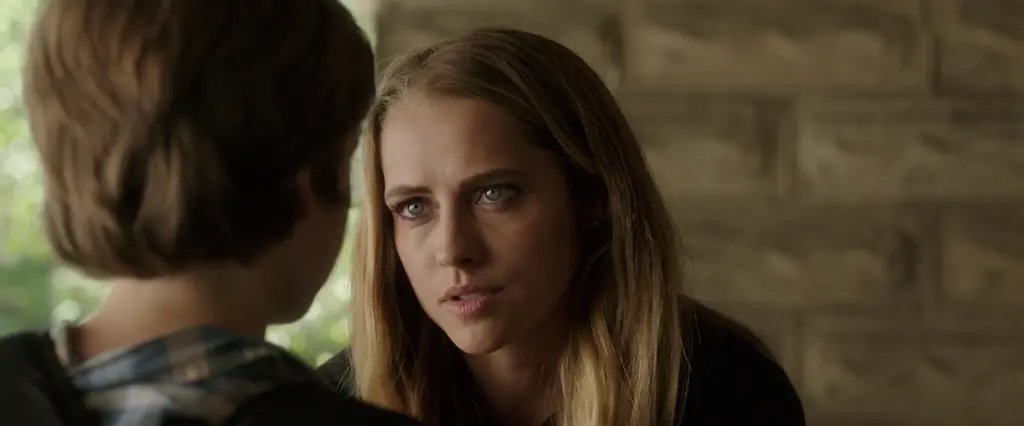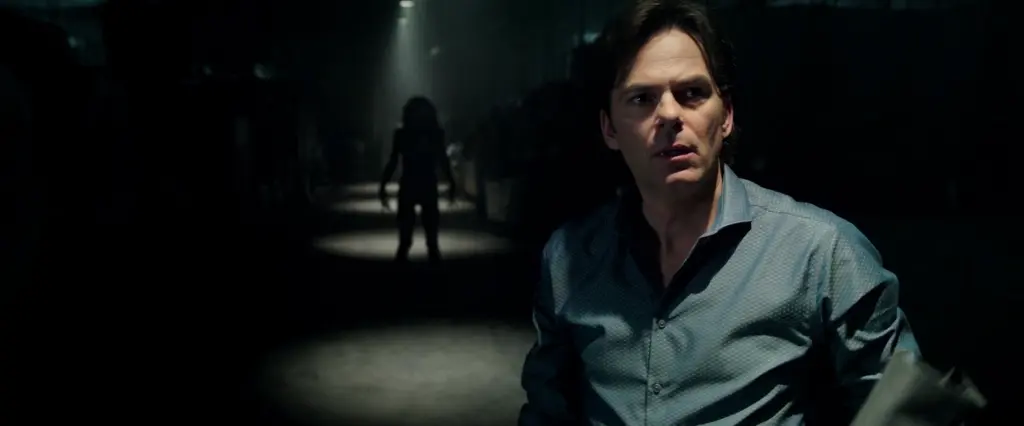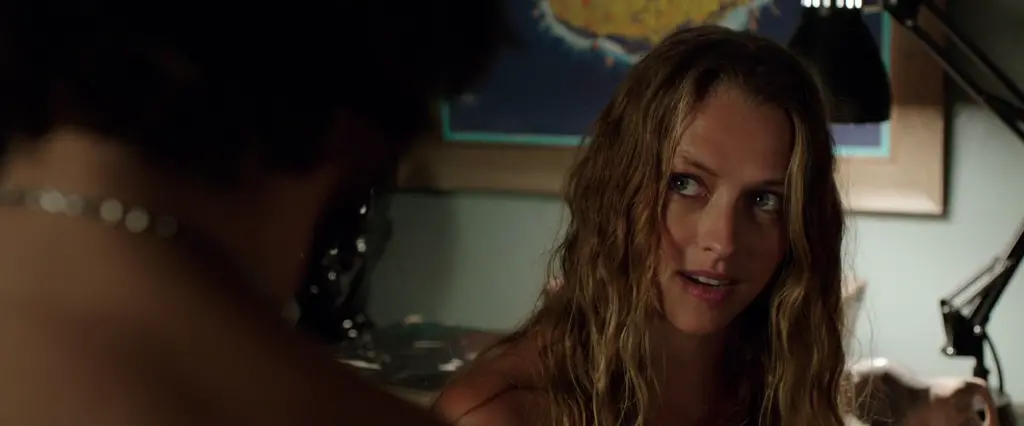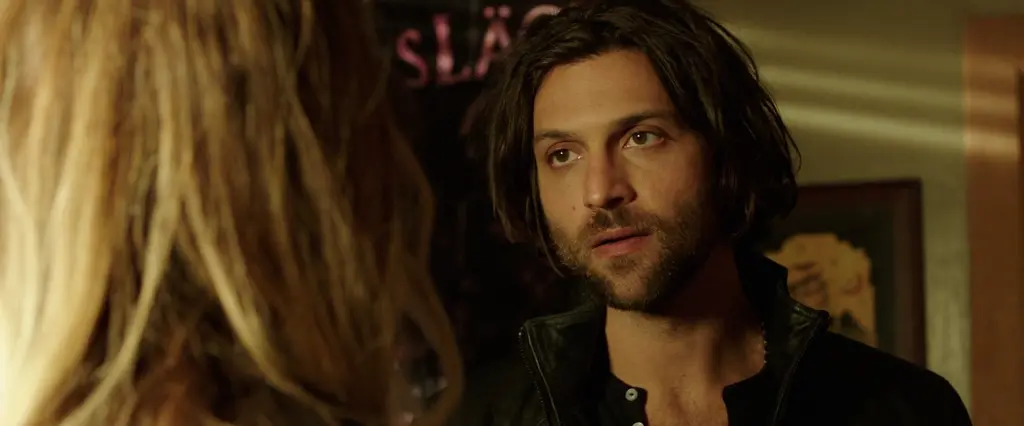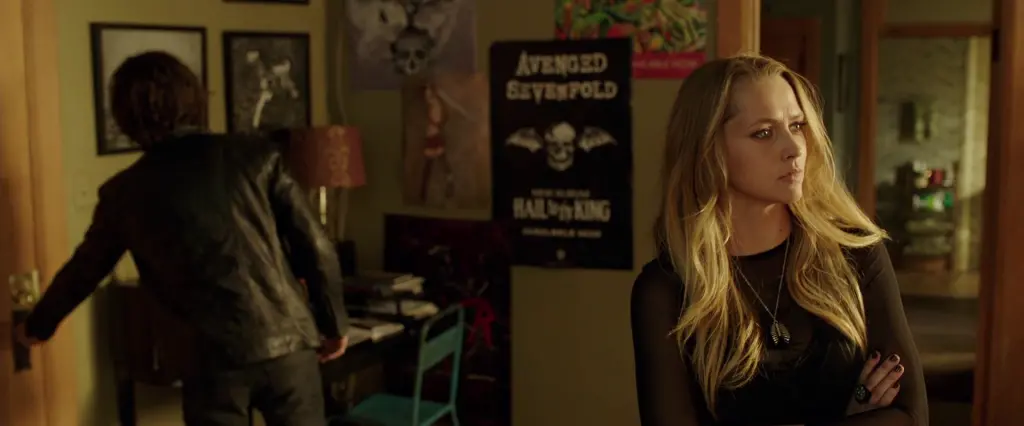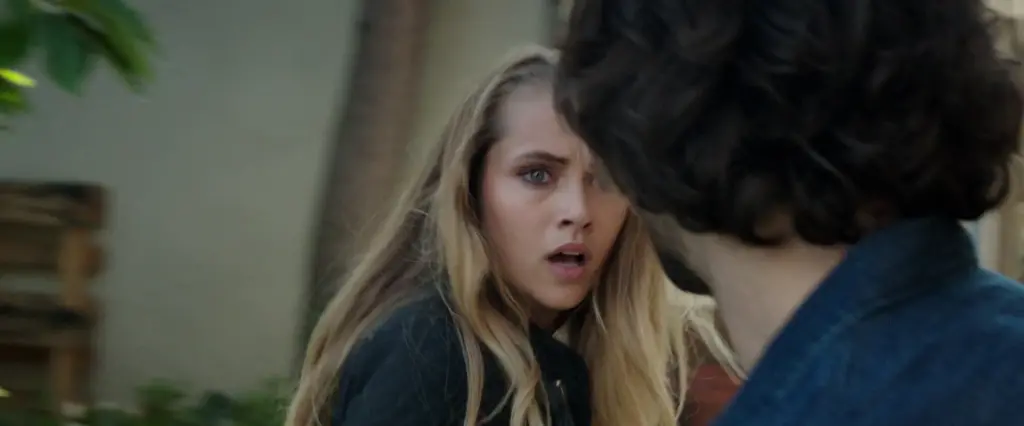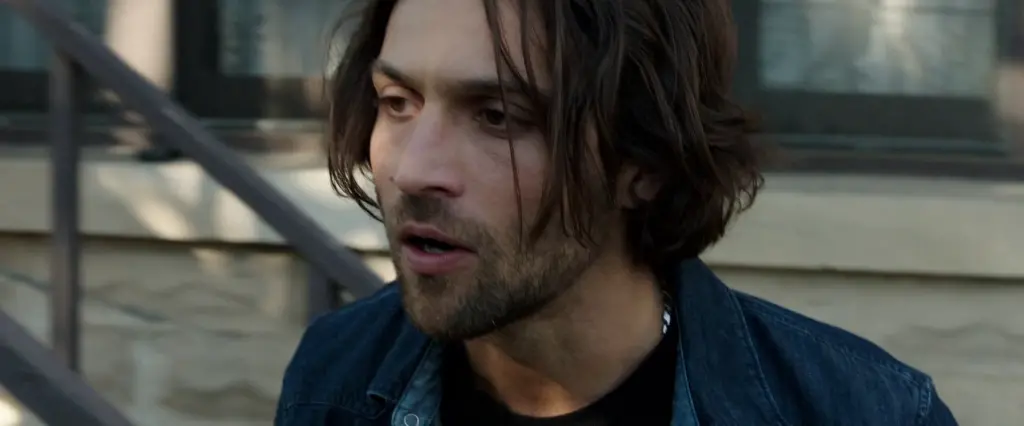When searching for new films to use for class, I found Lights Out, a 2016 Horror film by director David Sandberg that stars Teresa Palmer. Films that end up working really well for class aren't necessarily the ones that you'd expect, nor are ones you'd really like on a personal level.
Lights Out is PG-13, which makes the film pretty tame by horror standards. It also makes use of constant jump-scares and startles to accomplish its job of spooking the audience, a device that really undermines the weight of a truly scary moment. Overall, the acting isn't bad, but there are some goofy moments. The script is the same way. On my own, I probably would've skipped to end, halfway though.
But, many of these problems end up working pretty well in class. The acting is good enough to make each scene believable and understandable for students. The script pushes the story along and there aren't any glaring plot holes or problems. The jump-scares turn the movie into a game for students as they try to make their friends jump at the wrong moments. The PG-13 rating works, too, as I'm not showing gore to students.
The film has some unique ideas, too, bringing its monster to life and showing its limitations in a very understandable way.
As we learn later in the film, Diana was a patient in a mental hospital over 30 years ago. She suffered from a rare skin condition which burns her skin when exposed to light. The doctors tried an experimental procedure by blasting light rays at her (good idea), which incinerated her skin and body, reducing her to ash.
Her spirit still remained within the mind and body of a young girl she possessed at the hospital. Now, Diana only has a physical presence in the dark and shadows. When exposed to light, she disappears. But, she's still there.
They do some fun things with this. A character turns off the lights in a room and she appears in the shadows confusing the person. She disappears and reappears in sync with a neon sign at night as a character realizes someone is there. Spoilers, but my favorite use of this effect is at the end when police officers try shooting her. The muzzle flash from the gun is enough to make her disappear and the bullet goes right through her.
The closest thing to a theme the film has is the idea of commitment and abandonment.
Rebecca is the main character, played by Teresa Palmer. She is dating, not-dating her boyfriend, not-boyfriend Bret, played by Alexander DiPersia. The film starts with them in her apartment at night. Bret wants to stay for the night and he wants their relationship to move forward, but Rebecca pushes him out. She doesn't even call him her boyfriend.
Bret unfailingly continues to support her. He brings her to the school to meet, Martin, her younger half-brother. And he brings them back to their mother's house.
Rebecca fights with her mother because she blames her for driving her father away. Her mother fights back because Rebecca ran away after her father left and wouldn't support her. Rebecca also thinks that with the death of Martin's father in the opening of the film, Martin will suffer the same way as she did as a child.
She takes Martin, and they leave their mother at home, crying. Once again, the mother feels betrayed by Rebecca abandoning her, and Rebecca runs away from the situation.
In the apartment, she acts like a mother to Martin. But, Bret calls her out on her behavior. In the moment, she feels betrayed by Bret for not supporting her, and she tells him to leave.
In my class, up to this point in the film, we've been doing listening exercises. Students get copies of the script with missing words and sentences. While watching the scenes, they try to catch the words, and write them into the script. But, these scenes lead us to performance tests.
Performance Tests are done in pairs of students. For this first scene, one student is Becca and one student is Bret. These tests aren't just about remembering the lines and saying them. They must express themselves using the feelings of the characters through their words, gestures, eye contact, and movements.
The scene itself doesn't have any overwhelming gestures and movements expressing their feelings. It's almost all internal. Becca feels that she's doing the right thing by taking Martin away from her mother, and she feels hurt that Bret doesn't support her. Bret is clearly expressing his views on her actions and maybe suggesting that there's a better way.
"You should leave now," Becca says to end their conversation. Bret leaves as Becca stares straight, not looking.
Check the Course Page for grading criteria.
Over night, Diana comes to Becca's apartment and attacks her. She survives by turning on the lights. The next morning, child services takes Martin back to his mom. Becca calls up Bret, she apologizes, and then they go to Mom's house. They break in and Becca finds the information about Diana's past and who she is. She's attacked again by Diana, but Bret saves her. They both run out of the house, as her mother arrives.
This last scene is a much more energetic acting scene than the one from before. Both Becca and Bret are running from the house, and Becca is distraught and hysterical from her attack. Bret tries to help and understand the situation as he never saw Diana.
For this scene, both character's feelings and emotions are clearly visible, and students should clearly show them too through their performance. Because of Becca's hysterics, many of her words are fast and often said over Bret's. It's really important for students to act together and support each other to make the overall scene successful.
More to come
